We see them around from time to time, not as ubiquitous as earbuds, but there nonetheless - little electronic pads for reading books. Having spent a few years lugging massive books around for university courses while much of the material was available as PDFs, I've looked into different options, but never been happy.
Taking a year off to rest and immerse myself in all books that have been released while I've been trawling through badly-written academic articles, I did a quick calculation on how much it would cost to buy even a selection of them -- and went back to looking at e-readers.
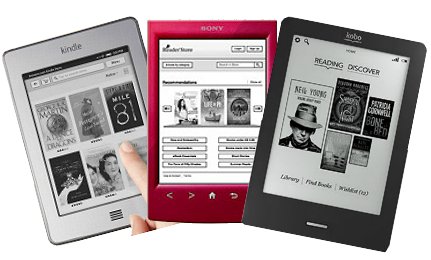
Kindle Touch, Sony reader and Kobo Aura HD
eReaders: The Experience
I've read a few novelists' comments about the joys of libraries and books. They write about the physical joy of reading a book. Years ago I reviewed a product called Fractal Design Painter (now Corel Painter). As a painter I've enjoyed the experience of painting, the feel of the brush, the smell of the paint and the canvas, the fun of watching the cat drink the brush water ... When I picked up the Wacom pressure sensitive stylus to start painting digitally I discovered that I had exactly the same response. My experience seemed to be related to the result, not the tactile process, the smells and so on. So why not have the same situation with ebooks -- responding to the words, not the paper.
One last thing about paper versus ebooks, I've spent years buying books. Some I'm on the fourth copy because they've fallen apart from reading. Books have to be stored, dusted, insured, packed, unpacked and they deteriorate. Even some hardcovers that are supposed to be acid free we found to have aging around the edges for at least a centimetre. The attraction of ebooks is that they can be loaded on a computer and backed up. They take up less space, the reading font can be changed so all books can be large print. The down side is I miss my pretty cover art - except on colour tablets. Kobo also sent us a colour tablet to try, so check out that review. Meanwhile, the benchmark I used for this article and the reviews was for a black-and-white touch screen that supported both wireless and USB and fit in a pocket or purse.
I began by reading an ebook on my iPhone. Ok, small screen, but I had it on me, a friend does it all the time, and I wanted to read the book on the tram. I enjoyed the book, it was convenient. I used Kindle for iPhone, but my friend Richard is quite happy with Stanza for the iPhone.
I've since read over a hundred novels in English and halting Spanish, mainly on the Kindle, but also on the other ereaders provided for review. For someone like myself who need many words translated from the Spanish, using the ereader has been muy conveniente. I started with Harry Potter y la camara secreta on the Kindle. Of course, first I had to buy and download the dictionary. I bought the New Dictionary HISPANO Spanish-English v.3.0 (Version 2013)
which was recommended on the forums, copied it to the Kindle and happy days. (The Sony Reader as you will see below comes with translation dictionaries FREE. So does the Kobo, but I started with what was recommended to me.)
Buying Ebooks and Freebies
My first shock was that some ebooks are more expensive than the hardcover. Yes, the printed book. A bit of trawling about the net and the word is that this was part of a deal between Apple and the publishers. According to the net, the Department of Justice is investigating and some of the publishers have already backed down. I looked at various sites, notably Amazon.com (Amazon.co.uk wouldn't sell to me), Barnes & Noble (who wouldn't sell to me the book I REALLY, REALLY wanted), Kobo, Diesel , and Australia's Angus & Robertson. After the first successful purchase, Angus & Robertson wouldn't sell to me because it argued that my address (the one below) is invalid. Who the #$%! cares, I want to download an ebook, not have the book snail mailed to me. I also bought a book directly from the publisher Baen who routinely put up freebies. Baen has announced that they have started selling on other sites and have therefore PUT THEIR PRICES UP. There were still some cheap books to be had there on July 10, 2013.
I found that not only were there different formats, but due to copy protection of some books, I'd need additional software. I rapidly found the excellent program Calibre which did conversions of non-copy protected files, and found a couple of utilities for um, getting around that. Let's be serious here. Copy protection sucks. (Read more about DRM here )
Yes, when one buys a paper book, one only gets the right to read it, not make it into a play, photocopy for your friends, or rip off the cover and make another with your name on it. That is, you own the right to read the book, you don't own the content. With ebooks the publishers saw the possibility for people just handing out digital copies to their friends and hence, copy protection. But not from all publishers. Amazon reserves the right to punish suspected wrongdoers by reaching out an wiping their Kindles. Backup. Backup. Backup.
I want to buy the books I want, for the best price. I don't want to have to have lots of different reader programs, and maybe different readers, just so I can buy the books I want. Kindle delivers by wireless connection, but also to Kindle for PC, which means that the purchaser gets a copy, although I think the copy is embedded with the email account you've registered with Amazon. Readers who elect to use all the wireless connectivity of the Kindle can move from Kindle for PC to Kindle to Kindle on the iPhone and Amazon tracks how far the book is read so your place is kept across the devices. Note: Kindle for PC needs to be the Windows 8 version to read Amazon-sold graphic novels. Sigh. I had to download a copy of Adobe Digital Editions to get my original purchases from Kobo. It's free, but another app, another step. Kobo has some freebies, some copy protected marked "Adobe DRM epub", some that download directly and some like the graphic novels that only run on certain devices like those with Android operating system. It's a good idea to really check out what the screen says, or doesn't say about a product before buying. Kobo were very nice about my buying something my other readers could use and offered a credit since I hadn't downloaded it.
So now I had four (count them) places on my computer where I was storing my ebooks -- the Adobe Digital Editions folder, the Kindle file folder and the Calibre file folders. Plus the copies on the reader. And if I wanted to I could archive my Kindle purchases to the Amazon cloud. Plus, computer person that I am, I was filing the ebooks in a logical structure on my computer, you know, fiction and non-fiction, author by lastname then first name. Just like my bookshelves in the real world. (Virtual teeth grinding here).
For people who don't care how things are organised on the disc as long as they have a simple drag-and-drop interface, a lot of this can be hidden by using Calibre (see review here). It even has it's own viewer, but can't read DRM protected files although it can catalogue and transfer them. Calibre's programmer writes not to ask him how to get around copy protection on Kindle files and epub files, but that's what search engines are for.
Sony and Kobo both also have PC-based apps. Sony comes loaded with setups for both Mac and PC. Both these have wireless connections to their own bookstores and sync with the PC, but again, more locations for files. Desktop apps are covered in the comparisons below.
Paying for books is good, it supports the people who write them, so they have time to write more. There are also sources for free books, notably Project Gutenberg (http://gutenberg.net.au for Australian books). These are scanned books that are in the public domain. Amazon has free books as well, and even takes advantage of text-to-speech capability and one can buy for very little money the spoken word version to go with it. Kobo has a few freebies, some of which are listed, but not available.
The only way to get publishers to reduce prices and make the ereaders more attractive is to vote with our feet. Buy the books that are reasonably priced, buy early, buy often. I used to work with Point of Sale analysis software and we found that the most profitable price point was $4.50 to $4.99. Five bucks is relatively painless. There is some noise that says printed copies are cheap to produce, so why should ebooks cost less? The thing is that actual paper books have to be printed, packed, insured, stored, transported, repacked, unpacked, placed on shelves .... it's not just the paper. I've written interfaces that convert manuscripts to eformat in three keystrokes, and the cost of running servers to store and deliver ebooks is less than the more labour-intensive hard copies. I'm not suggesting that all books be $5, however when a book I already have on my shelves is less than $5, I buy it and send the copy off to goodwill.
Ebooks are also seen for sale by the authors, especially self-publishers. They can be an inexpensive way to discover new talent. Author Kevin J Anderson and other less-well-known writers has had books sold in bundles at StoryBundle.
Amazon have a "lending" services, where a customer can elect to "lend" a copy of an ebook that they purchased for a period of two weeks. The book disappears from one Kindle, appears on the other for two weeks, then is wiped off the second kindle and available once again to the customer. Maybe this is one way of people sharing the cost. But from a retail point of view, if four people share a $20 ebook when they could have bought four copies for, say, $6.99, then the retailer has lost money. There are also some library services for borrowing ebooks. Check the internet if you're interested.
The Sony Reader has an interface for people with library cards to local libraries who lend ebooks.
As an aside there has, for authors, been a downside that you may find out about on Amazon. Publishers of ebooks have been finding books out of copyright and reissuing them. One author didn't renew his copyright because he didn't want the book republished. Now it's there on Amazon and he's a little bit peeved.
Comparing ereaders -- Their Look-and-Feel
Reviews and comparisons -- Click here
|
Share this |
by Ali Kayn © 2013 |

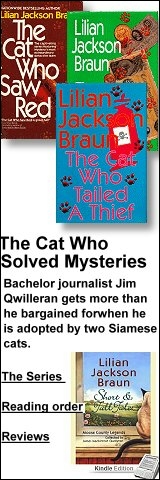
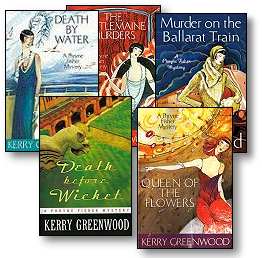
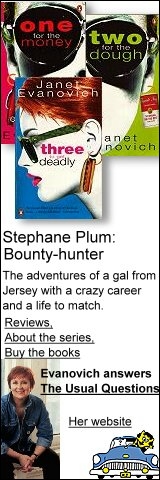
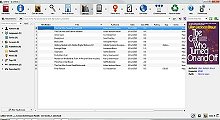

 Published in Melbourne, Victoria, Australia
Published in Melbourne, Victoria, Australia